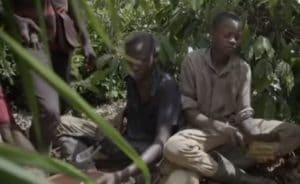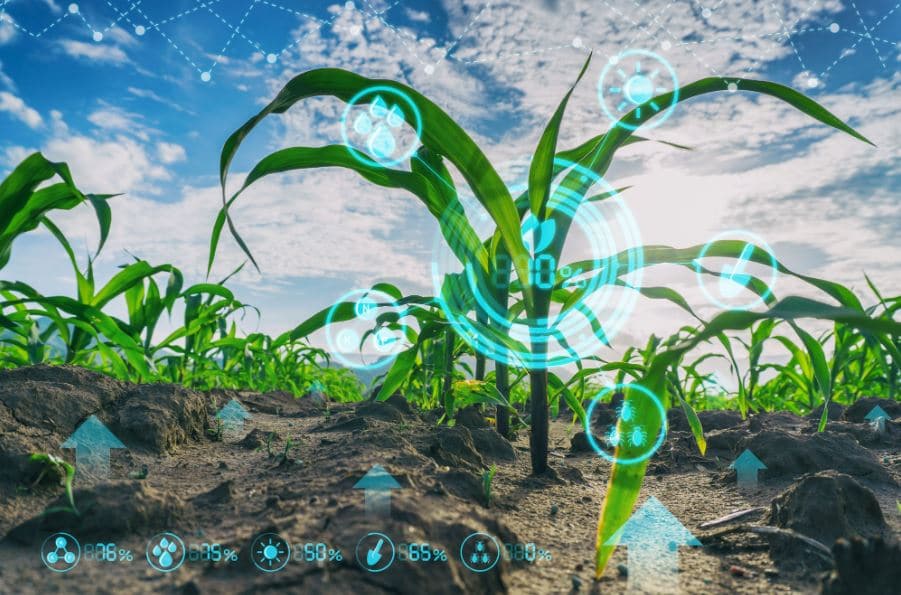It’s easy to find numerous articles that explain how blockchain technology can track the whole supply chain journey of foodstuffs from “farm to fork,” from its raw origin to its presence on our plates. At the same time, a recent documentary on cocoa production told of exploitation of illiterate and illegal migrant workers, child labour, deforestation of “protected” forests that are vital to the whole ecosystem, and unlicensed crops bought by international buyers at premium prices to supposedly underpin sustainability. Why is it like trying to match up parallel universes that will never meet?
Raw cacao production
The Ivory Coast in west Africa is the world’s single largest national producer of cacao beans, with 40% of the total. To the international community, it appears to be a controlled and sustainable cornerstone of the country’s economy, with international buyers paying premiums to safeguard tracts of natural forests (and thus the climate as well), workers’ welfare, and the health and education of their children.
The truth is that many registered farmers employ migrant workers from neighbouring Burkina Faso. Though the Ivory Coast is itself a very poor country, wages are about twice the level of Burkina Faso. However, with education being so relatively expensive, families often have to decide which one of their children is going to have the benefit of attending school. The others work, totally illegally, alongside their parents. A big incentive to work hard for years is the possibility, with nothing guaranteed, of being granted a small piece of land on which they can grow and harvest their own cacao. This is far from unique: there are approximately 450–500 million smallholder farmers, or those who work small plots of land for subsistence and to harvest a couple cash crops.
 Conditions on unregistered farms are even worse. Parents from Burkina Faso sell their children for the equivalent of around €300 for two to three years of unpaid work for plantation farmers. Totally beyond regulated controls of any description, illegal workers of all ages on illegal cacao farms burn down trees and destroy undergrowth with toxic herbicides that give them cancer. They work with sharp machetes to cut the cacao pods open by hand, and there are no schools to attend. The chemicals speed up the pace at which fertility in the soil is exhausted, and the illegal plantations continually hack into new areas of forest, undisturbed by any rangers.
Conditions on unregistered farms are even worse. Parents from Burkina Faso sell their children for the equivalent of around €300 for two to three years of unpaid work for plantation farmers. Totally beyond regulated controls of any description, illegal workers of all ages on illegal cacao farms burn down trees and destroy undergrowth with toxic herbicides that give them cancer. They work with sharp machetes to cut the cacao pods open by hand, and there are no schools to attend. The chemicals speed up the pace at which fertility in the soil is exhausted, and the illegal plantations continually hack into new areas of forest, undisturbed by any rangers.
From 1990 to 2015, 90% of Ivory Coast’s natural forest has been cleared. The deforestation impacts the whole climate, reducing the level of rainfall and affecting every other crop as well as cacao.
What buyers believe they are paying for
Large international buyers have signed up to agreements under which they pay premium prices for regulated farmers to deliver produce grown sustainably; to provide better conditions for their workers; and for workers’ children to have access to schools.
This gives the buyers, and their consumer-facing customers – the global confectionery brand owners that include Nestle, Mars and Hershey – some peace of mind that they are “doing the right thing.”
The process is supposed to be safeguarded by raw produce being provided in bar-coded sacks to record their point of origin.
What allegedly takes place
Armed gangs of militia discourage journalists and use illegal checkpoints to extract toll money from any other travellers. This provides funds to bribe government officials to turn a blind eye to the illegal activities such as child labour, tree-burning and a lack of any protective equipment.
Registered plantations blend their produce with more supplied by illegal farms, then they bag it in the bar-coded sacks required by the buyers, and receive payment.
The role of blockchain
The application of “big data” in farming makes sense because collecting and assessing more data allows better decision-making, enabling farmers to be more efficient: produce higher volumes, use less resources, maybe even bring their output to market at the optimum time. Crowdsourcing data through various forms of agritech to improve food production, and also recycle surplus, is a topic we have covered before.
Using blockchain technology to record the data and any assessments of it means agricultural products can be tracked and controlled from original producers to end-user food manufacturers and retailers, using maximum visibility throughout the entire supply chain process.
Benefits stemming from data held on interference-free blockchain technology include:
- a possible record of the conditions under which crops or livestock was grown;
- smart contracts which involve automated payment systems;
- ease of product recall in the event of tainted produce.
Given the irregularities that involve blending legal with illegal cacao, another possible use of blockchain is that each cacao farmer’s usable land area could be measured, allowing for the fertility of the soil, and sensors could record the rainfall and temperatures. The data could not be falsified by farmers, meaning buyers, plus other stakeholders in the supply chain, would thus have access to credible and immutable data on which to project crop size, anticipate required payment levels, and identify irregularities of over-supply.
Naturally, there would be costs: mapping, installing sensors – plus protecting them to maintain the integrity of the eventual data, and aggregating the data to estimate output levels. Buyers also claim, despite being so relied on by the growers, that they cannot introduce such technology because they do not own the farms. Even monitoring areas by satellite to establish a general range of weather and climate conditions would be a start.

Image source: AGDAILY
All stages of the supply chain would need to use blockchain technology so that it remains possible to track finished food products made from each consignment of raw cacao. This provides buyers with a “chicken and egg” situation as a reason not to bother: who should be the first mover?
However, the downside of not doing something more robust than trusting the farmers’ questionable honesty is “naming and shaming” by lobbyists and protest groups. They already regard the consumer brand owners as complicit in the continuation of unsustainable farming, decimation of natural resources, child labour, terminal illness and denial of human rights. Such pressure would ideally transmit through to action by the buyers they work with. Having said this, an appeal against a legal ruling stating that an international chocolate manufacturer and their corporate buyer knowingly profit from abuses against children is currently being heard in the US Supreme Court.
 The global cacao-based confectionery industry pays just 6% of its annual turnover of more than €100 billion to the growers. This represents about €1 a day for the farm workers. Manufacturers and retailers take about 80%. The technology to project the size of legal crops is there, the means to pay for it to be used is there, it seems the will power is not. How does that affect your taste buds?
The global cacao-based confectionery industry pays just 6% of its annual turnover of more than €100 billion to the growers. This represents about €1 a day for the farm workers. Manufacturers and retailers take about 80%. The technology to project the size of legal crops is there, the means to pay for it to be used is there, it seems the will power is not. How does that affect your taste buds?





0 Comments